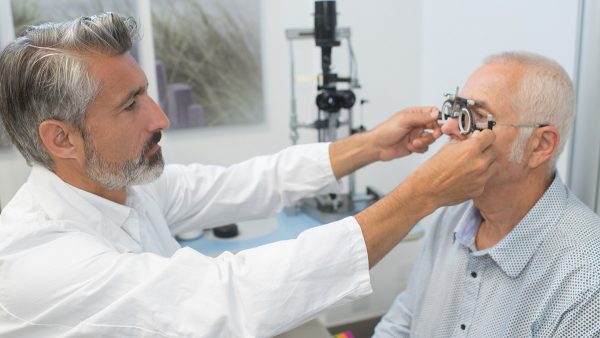How common is blindness in diabetes?

Are you worried about going blind with diabetes? Not sure if you’re at risk of vision loss? Many diabetic patients experience some form of retinal damage, but the severity varies by age and other factors. Let’s explore the causes, prevalence and treatment for blindness in diabetes.
The top cause of vision loss with diabetes
Diabetic retinopathy is a common cause for vision loss. High blood sugar levels damage the blood vessels in the retina. The vessels may leak or swell, which impacts a person’s ability to see. Smoking and high blood pressure further increase the risk of developing retinopathy.
In early stage retinopathy, blood vessels form pouches in the eye that lead to blurry vision. This can cause macular edema, which is the top reason for blindness among people with diabetes.
With advanced stage retinopathy, new blood vessels form in the retina. These vessels are fragile, and as they leak, they form floating dark spots in the eyes. Blindness occurs when the bleeding becomes excessive and persistent.
How common is blindness in diabetes?
Vision loss is common among people with diabetes, but only 5% experience severe vision loss and blindness. The longer a person has had diabetes, the higher the probability of mild-to-severe retinopathy.
Many patients with type 1 diabetes will not experience vision loss for at least five years after diagnosis, but for type 2 diabetes, the retinopathy may already be present at the time of diagnosis.
Fifteen years after a diabetes diagnosis, 78% of people with type 2 diabetes and 98% of those with type 1 diabetes have some form of retinal damage.
How to prevent blindness with diabetes
The best way to control vision loss with diabetes is to get yearly eye exams and proactive eye care. Your eye doctor can check for early signs of vision loss and recommend the appropriate treatment.
If you are local to the Oklahoma City area and need an eye doctor for diabetes, the specialists at Oklahoma City Vision would be happy to help. Reach out to schedule your consultation and start your retinopathy management journey.
